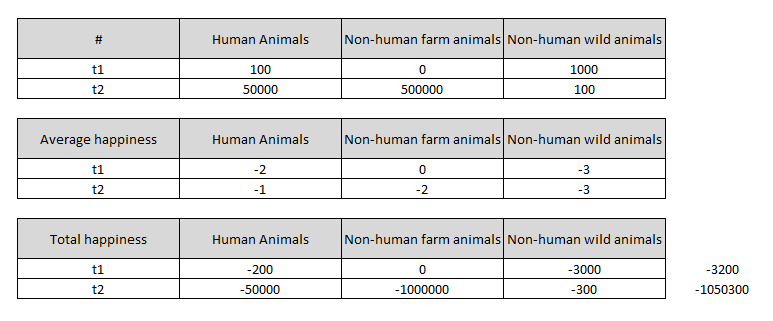Effective altruism is a philosophy and social movement that uses evidence and reasoning to determine the most effective ways to benefit others. Effective altruism encourages individuals to consider all causes and actions and to act in the way that brings about the greatest positive impact, based upon their values.
Transhumanism is a technological, social and political movement that aims to promote a directed evolution of the human species. Within transhumanism, the following stand out, among others (and in an order that pretends to be from less to more futuristic):
- The modification of the body in the most diverse forms, with practical, aesthetic, artistic, cultural, sexual and all kinds of criteria —something that all human cultures have always done, for example, with jewelry, rings, earrings, by painting the body or putting glasses on the eyes— but now in a radically more powerful way than what has been done so far, not only through cosmetic surgery but, for example, implanting an antenna that allows to hear colors or feel earthquakes or fins in the head that generate vibratory sounds that travel through the bone of the skull depending on the pressure changes of the atmosphere.
- The use of technologies and areas of knowledge such as nanotechnology, biotechnology, genetic manipulation (CRISPR Cas9), beneficial viral infections, information technologies, artificial intelligence, neuroscience, virtual reality and cryonics to achieve:
- Communicate between humans and even non-human animals, in a kind of “telepathy” or universal language, immediate and intuitive.
- Super longevity. Intervention in biology to avoid senescence, and potentially achieve immortality.
- Super happiness or super well-being. Maximizing happiness and enjoyment, eliminating pain and suffering, as well as depression and all mental illnesses.
- Super intelligence or super wisdom. The establishment of modifications and improvements in the thinking machine to reach the highest levels of cognitive excellence.
- Super empathy, super altruism or super morality. Evolve human beings towards beings as kind as possible.
- The transit to another species, completely different from the current human species (trans-humanism as a path to post-humanism), and among them:
- “Upload” (move) your own identity to the “cloud” (to an Information Technologies infrastructure), including the digitization of the being, with all its memories and way of thinking.
- Achieve a sort of divinity or angelic nature.
- A merge of all entities or souls into a large high-level entity.
Transhumanism includes:
- The modification of the body after birth.
- Intelligent design before birth, by selecting or modifying embryos. Eugenics (“good birth”) or the use of the biological laws of inheritance to perfect the human species.
Determining whether transhumanism is altruistic or not will depend, under a secular consequentialist paradigm, on the global positive effects that they produce. I do not question the incredibly high potential increase in happiness generated by transhumanist advances in particular individuals, even in many of them, but I question its global consequence.
Transhumanism suggests that technology will allow the satisfaction of desires and therefore will create happiness. Even some people consider transhumanism as an altruistic movement, that should be supported from effective altruism. But I think that, depending on the type of transhumanism, the opposite may happen. Unfortunately, so far, I think overall, technology is increasing the suffering and will increase it even more. Even though technology increases the happiness of the average individual. Below I explore arguments for and against this idea.
How can technology increase the happiness of the average individual and at the same time increase total suffering?
Short answer: when technology leads to many more individuals whose average happiness is negative.
Long answer:
Many people consider that technological (well known) advances have a global positive effect on the happiness of those beings that may be affected by them. But if they think like this, maybe it is because they have forgotten some types of individuals or because they make an overly optimistic interpretation of the global effects.
I insist on the idea of ”global”, since I do not refer to the effect on the average individual, but to the total, global effect, which could be the opposite. In the following example we can see how this is possible.
As for the beings that may be affected by technology, I refer to all those beings who have interests and can be affected by technology. I will consider that they are the beings that feel that they live on our planet; let’s say they are beings with a central nervous system.
For example at a certain time (t1) there could be 100 human animals whose average happiness is -2 and 1,000 wild non-human animals whose average happiness is -3. After a while (in t2, after the agricultural and industrial revolutions) there could be 50,000 human animals whose average happiness is -1, 500,000 of non-human farm animals whose average happiness is -2 and 100 wild animals whose average happiness is – 3.

In this model, the happiness of wild animals is constant (and their number decreases), while the happiness of both human and farm animals improves and their numbers grow. However, given that in both cases the average happiness is negative and the number of individuals has grown, the total happiness is lower, since it is an even larger negative number. The figure goes from Ft1 = (100 * -2) + (1,000 * -3) = -3,200 to Ft2 = (50,000 * -1) + (500,000 * -2) + (100 * -3) = -1,050,300.
Going from -3,200 to -1,050,300, the agricultural and industrial revolutions would multiply suffering more than 300 times. The figures that I have used are almost totally arbitrary, but they have their meaning. They try to represent a relatively simple prioritization to establish by means of questions of the type: would I prefer to reincarnate myself in a random human of the twelfth century or in a random human of the 21st century? Would I prefer to be reincarnated as a farm animal or as a wild animal? Maybe none? My impression is that technology has improved the average levels of happiness of individuals, but as it has done by increasing the total number of individuals, and being the average happiness negative, what has been achieved in recent centuries has been to decrease total happiness.
Is transhumanism altruistic or not?
Transhumanism will be altruistic or not depending on the type of transhumanist activity and, ultimately, on the results obtained. For example:
- Assessment A: Transhumanist efforts aimed at modifying individuals and making them happier increase happiness.
- Assessment B: Transhumanist efforts aimed at modifying individuals and making them more moral and altruistic would reduce suffering, and would be altruistic, as conflicts will decrease and mutual support will increase.
- Assessment C: At the opposite extreme is, in my opinion, the current transhumanism that seeks the adaptation of bodies for spatial colonization, since any significant advance we make is oriented towards the expansion of sentient life by the universe, while this life continue to have a negative level of happiness, only misery and pain will increase, perhaps astronomically. This is in my opinion the most counterproductive case of transhumanism.
- Assessment D: Transhumanist efforts to extend human life have seemed selfish and unproductive to me, oblivious to the reduction of suffering. Later I realized that this assessment was made from an ethic of virtue, for its motivation, and not from a consequentialist ethic. There are some reasons to position ourselves in favor of lengthening human lives from an ethic based on the reduction of suffering:
- Under the same selective pressure, the longer the lives of a group, the fewer deaths there will be, and since considerable suffering is usually associated with the experience of dying, then the longer the lives, the better, because there will be less global suffering.
- Robert Daoust argues that, in a sentient organism, the ultimate regulator is unbearable suffering, and because of that, we would have to ensure that resurrection is available or that sentient beings are immortal, if we want sentient beings without the capacity to experience pain. The reasoning is as follows: we observe that suffering preserves from destruction by forcing entities to get away from harm. If we think about how organisms would be like that did not feel any suffering at all, we realize that they would probably self-destruct, if their behavior were not technically constrained, since the desire for power makes us want to go beyond our limits, and in our attempt to do so, only unbearable suffering prevents us from destroying ourselves. If we want an entity to be free and without suffering, then we must let it do what it wants even if it is de-structed by that. So we have to make it able to survive its de-struction. In other words, it has to be able to resucitate.
It is not difficult to argue against my valuations (A, B, C, D), among other reasons, because it is very difficult to make good long-term predictions. Some ways my valuations can fail are:
- Assessment A and B: A happy, moral, peaceful, suffering-free society could be annihilated by another unhappy and aggressive society. The solution to avoid this would be for the first society to be, at the same time, powerful. And to be powerful and not suffer it will need a motivation greater than or equal to the motivation that suffering implies, but only if we assume that motivation is a key factor in achieving objectives. Maybe motivation is not that important, or maybe motivation is just an illusion. Perhaps gradients of bliss are enough.
- Assessment C: The colonization of the solar system may be necessary to avoid human extinction, with humans the only thing that can avoid animal suffering in nature for the moment.
- Assessment D: The near immortality of humans could endiose them further, making them even more indifferent to non-human suffering. In fact, most humans right now are speciesists and ignorant of animal suffering. It would be a catastrophe for the animals if the immoral generation were the current one.
In short, immortality and the colonization of space seem to me that they can be good ideas in the future, but right now they are projects whose consequences would be very negative. The short-term effect of making individuals happier and more moral seems clearly positive to me, but the long-term consequences are not clear to me.

3 Comments